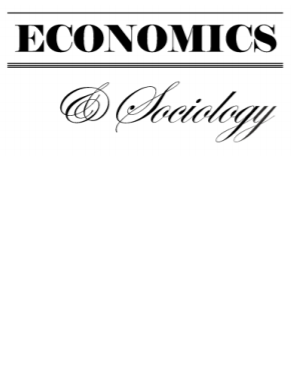Analysis of the relationship between income inequality and social variables: Evidence from Indonesia
Analysis of the relationship between income inequality and social variables: Evidence from Indonesia
Author(s): Abdulrahman A. Taresh, Dyah Wulan Sari, Rudi PurwonoSubject(s): Business Economy / Management, Economic development, Human Resources in Economy, Socio-Economic Research
Published by: Fundacja Centrum Badań Socjologicznych
Keywords: income inequality; social variables; panel co-integration; Indonesia;
Summary/Abstract: This study tries to analyse the relationship between income inequality and social variables to provide additional empirical input on the related structural model. To achieve these objectives, this study uses the cointegration and long-run structural vector auto-regression (SVAR) for the panel data on 33 provinces in Indonesia over the 2005-2018 period. The study concludes that income inequality has a positive impact on population growth, unemployment, and poor health, whereas it also has a negative effect on education, human development, and urbanisation growth. Population growth, unemployment, poor health and urbanisation growth can increase income inequality, while education and human development index reduce income inequality. Furthermore, increased minimum wages can reduce income inequality, poor health, and increase education and per capita income. This study also found that per capita income has a long-term relationship with income inequality and population.
Journal: Economics and Sociology
- Issue Year: 14/2021
- Issue No: 1
- Page Range: 103-119
- Page Count: 17
- Language: English

